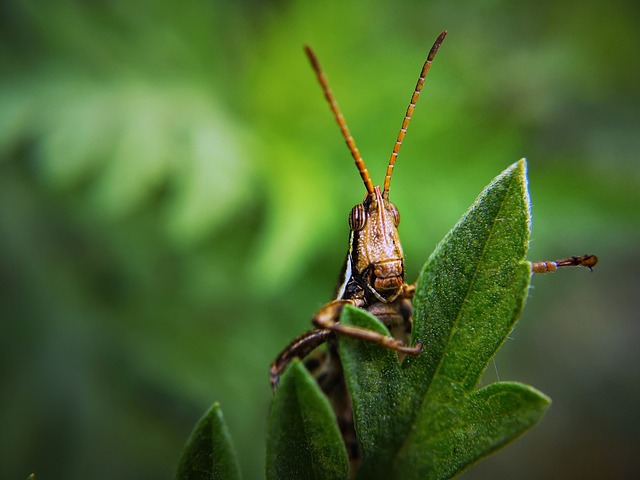By Lynda Kiernan-Stone, Global AgInvesting Media
When it comes to insect and pest control, agriculture is in a tight spot. Tasked with feeding the world, it is critical to combat and control damage caused by insects and pests. Agricultural pests are the root cause of social, economic, and health damage that account for $70 billion in crop losses in the U.S. alone. However, not only are traditional pesticides broadly harmful to beneficial insects alike, but also present significant harm to our environment and human health, while targeted pests continue to become more resistant to our tools at-hand.
On a global scale, more than 600 species of pests have developed a resistance to agri-chemcials on some level – sometimes to entire “families” of pesticides, cutting a swath through what farmers have available to work with to protect their crops.
Considering that 75 percent of food crops depend on insects for pollination, it is of the utmost importance to develop successful, targeted, and safe solutions to this problem. Currently, the global insecticides market is dominated by synthetic chemicals, accounting for 94 percent of all control solutions, according to the company – representing a projected market value of $27 billion, but one that pigeonholes the entire food system with few choices.
In 2018 the UK government banned the use of neonicotinoids – an entire class of insecticides because of their devastating effects on pollinators. However, by 2021 this decision was reversed for use on sugar beets to combat sugar beet yellow virus which is spread by aphids, because there were no other options widely available.
This tight supply of traditional agricultural inputs, a shrinking base of arable farmland, a higher level of willingness by farmers to adopt new systems that can result in higher yields while being environmentally safe, along with consumer sentiment calling for cleaner supply chains and less agrochemical usage, have driven a wave of innovation that has increasingly brought the biologicals category onto the radar of investors.
One such innovator is Glasgow-based SOLASTA Bio – the first tech startup to develop neuropeptide-based insect controls that are inspired by nature and not selected from a synthetic chemistry bank.
Spun-out from Glasgow University, SOLASTA Bio develops small, next-gen neuropeptide-based insect control products that effectively target any insect pest of interest while posing no harm to pollinators, bees, or beneficial species through the disturbance of targeted physiological processes by neuropeptide-based insect control agents (ICAs).
To advance its work, the company announced it has secured a further £4 million (US$5 million) in pre-Series A funding led by Yield Lab Europe, and including Rubio Impact Ventures, Scottish Enterprise, Cavallo Ventures, SIS Ventures, UKI2S, and several unnamed, private agritech investors.
Financial support fwas also secured through grants from Innovate UK’s Transforming Food Production competition and Scottish Enterprise, bringing total capital raised by the company to £5.5 million (US$6.9 million).
“SOLASTA is a terrific example of how breakthroughs in science and academia can be brought to bear on the world’s grand challenges and build the high-growth businesses of the future,” said Kerry Sharp, director of entrepreneurship and investment, Scottish Enterprise.
“We’ve supported the company since its very earliest stages and continue to be impressed by its product development; expanding, diverse team; and the strong cadre of investors it’s attracted.”
Tijl Hoefnagels, venture partner with Rubio Impact Ventures, added, “SOLASTA’s team translated deep insect physiology knowledge to pest control agents that bring no collateral damage to other animals or pollinators. This is a huge white spot in the current market offering. As Rubio deems the loss of biodiversity as urgent as climate change, SOLASTA is right in the sweet spot of what we want to invest in.”
The company noted that it has already conducted several successful early-stage R&D trials with commercial partners, and is on pace to bring its first ICA to market in 2027 – half the time it takes conventional synthetic pest control products.
With this funding in-hand, SOLASTA Bio stated that it plans to scale its UK and U.S.-based operations, expand its tech and commercial teams, create 25 new jobs, accelerate the development of its tech platform, and target new markets. “We’ve spent the past 18 months developing our platform and validating peptide candidates with expert third parties and commercial partners,” said Shireen Davies, PhD, FRSE, CEO, SOLASTA Bio. “We’re really excited by the results and feel that we’re ready to take the next step towards commercializing our technology.”
“With the issue of food security, and effective crop protection becoming an increasingly pressing issue for the agriculture industry and governments worldwide, there is an urgent need for sustainable environmentally-friendly alternatives to current synthetic pesticides. We’re confident that our technology provides the solution and has the potential to make a huge impact.”
~ Lynda Kiernan-Stone is editor in chief with GAI Media, and is managing editor and daily contributor for Global AgInvesting’s AgInvesting Weekly News and Agtech Intel News, as well as HighQuest Group’s Unconventional Ag. She can be reached at lkiernan-stone@globalaginvesting.com.
*The content put forth by Global AgInvesting News and its parent company HighQuest Partners is intended to be used and must be used for informational purposes only. All information or other material herein is not to be construed as legal, tax, investment, financial, or other advice. Global AgInvesting and HighQuest Partners are not a fiduciary in any manner, and the reader assumes the sole responsibility of evaluating the merits and risks associated with the use of any information or other content on this site.

